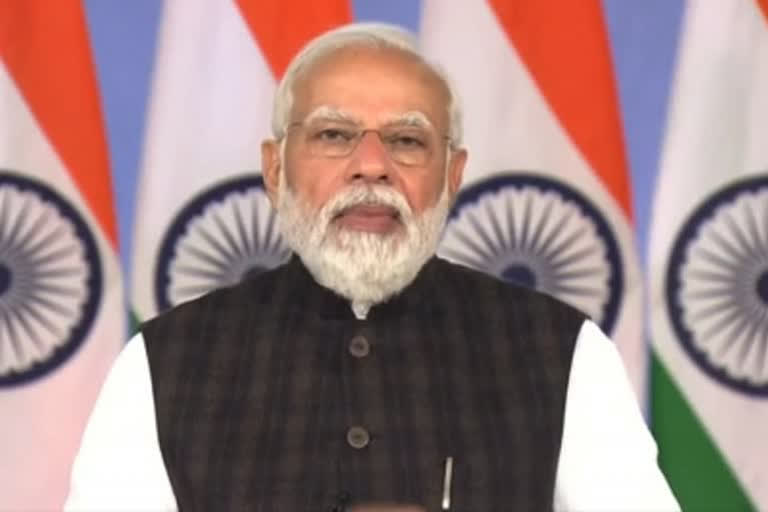New Delhi: Design and development of unique defense capabilities that are tailor-made to meet the Indian military’s requirement is the key to national security as it cannot be achieved through imports, said Prime Minister Narendra Modi as he explained the blueprint to achieve self-reliance in defense.
Addressing a webinar on budget proposals related to the defense sector, Modi alluded to the neglect of indigenous design and development in the defense sector after independence that led to the country becoming one of the world’s largest arms importers in recent years.
Modi said the development of the local defense industry was critical for national security as if similar weapon systems are available with other countries then the Indian military will not have an edge over its adversaries.
“The most basic concept of security is having your unique defence equipment that is customised to your needs. Only then it can help you,” Modi told the audience which included Defense Minister Rajnath Singh and other senior civil and military officials.
Further elaborating on his idea of self-reliance in defense, the Prime Minister said if ten militaries have the same equipment then the Indian military will not have any unique thing. “Uniqueness and surprise elements can only be there when the equipment was developed in your own country,” observed the Prime Minister who had launched Atma Nirbhar Bharat Abhiyan (self-reliant India campaign) in 2020 to reduce the country’s dependence on imports in critical sectors including defense.
Modi said India was producing quality arms and ammunition under British rule and made in India weapons played an important role during the second world war. The country retained these capabilities after independence but it gradually eroded over the decades due to neglect. “It has weakened over the years. It shows that India never lacked capability, neither at that time and not even today,” he told the audience.
Self-reliant India in defence
As part of the government’s flagship scheme Atma Nirbhar Bharat (a self-reliant India), which was announced by Prime Minister Narendra Modi in May 2020 and aims to reduce the country’s dependence on the critical sectors, the government has announced several initiatives for the defense sector.
These measures include a negative list for defense platforms and equipment which cannot be imported if a locally developed suitable product is available within the country. Under this policy, the defense ministry has released two lists and banned the import of more than 200 pieces of defense equipment and platforms.
Modi said the government will soon announce a third list banning the import of more defense equipment and platforms. “Third list is also going to be approved soon. When we procure weapons from abroad then the process is so complicated that by the time we import them and they reach our armed forces, they become outdated,” observed the Prime Minister.
Timely acquisition of defense hardware has always been a challenge for India’s defence establishment. The process of technical and financial evaluation for some critical equipment stretches for several years and in some cases, it drags on for over a decade or two.
Indian Air Force projected the requirement for 126 medium multirole combat aircraft (MMRCA) in 2001 but evaluation of six aircraft, including French Rafale and Eurofighter Typhoon, was only complete 12 years later in January 2012. Even then a deal could not be clinched during the UPA’s time.
India canceled the tender during PM Modi’s first tenure and signed a government-to-government agreement in 2016 for 36 aircraft. With the delivery of the last three Rafale jets this week, the delivery of Rafale is completed in February this year, more than 20 years after the projection of requirement by the IAF.



